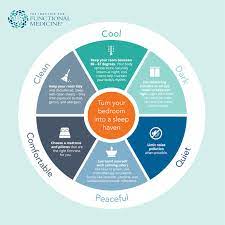The Benefits of Taking Naps
Many of us view napping as a luxury or a sign of laziness, but the truth is that taking a nap can have numerous benefits for our overall health and well-being. In fact, napping is a natural part of our circadian rhythm and can help us recharge and stay productive throughout the day.
Improved Alertness and Performance
Studies have shown that taking a short nap during the day can significantly improve our alertness, concentration, and cognitive performance. A quick power nap can help us feel more focused and energized, making it easier to tackle tasks and make decisions effectively.
Enhanced Mood and Stress Reduction
Napping can also have positive effects on our mood and emotional well-being. A brief nap can help reduce feelings of irritability, frustration, and stress, allowing us to approach challenges with a more positive outlook. It can also help regulate our emotions and improve our overall mental health.
Boosted Memory and Learning
Research suggests that napping plays a crucial role in memory consolidation and learning. By taking a nap after learning new information or skills, we give our brains the opportunity to process and store this information more effectively. This can lead to better retention and improved cognitive function.
Physical Health Benefits
In addition to its mental benefits, napping can also have positive effects on our physical health. A short nap has been linked to reduced risk of heart disease, improved immune function, lower blood pressure, and better weight management. By allowing our bodies to rest and recover during the day, we support overall health and longevity.
Tips for Effective Napping
To make the most of your naps, consider the following tips:
- Keep your naps short (around 20-30 minutes) to avoid grogginess.
- Nap in a quiet, dark environment to promote relaxation.
- Avoid napping too close to bedtime to prevent disruptions in nighttime sleep.
- Experiment with different nap times to find what works best for you.
- Limit nap time to 20-30 minutes to avoid grogginess.
- Find a quiet and dark place for napping to promote better sleep.
- Establish a consistent nap schedule to regulate your body’s internal clock.
- Avoid napping late in the day to prevent interference with nighttime sleep.
- Use relaxation techniques like deep breathing before napping for better quality rest.
- Experiment with different nap lengths and timings to find what works best for you.
Conclusion
In conclusion, taking naps can be a valuable tool for enhancing productivity, improving mood, boosting memory, and supporting overall health. Instead of viewing napping as a sign of laziness, consider it as an important part of self-care that can benefit both your mind and body. So go ahead – take that afternoon siesta guilt-free!
6 Essential Tips for the Perfect Nap
Limit nap time to 20-30 minutes to avoid grogginess.
Limiting nap time to 20-30 minutes is a practical tip to prevent feeling groggy after waking up. By keeping naps short and sweet, you allow your body to enter the light stages of sleep without delving into deep, restorative sleep cycles. This ensures that when you wake up, you feel refreshed and alert rather than disoriented or sluggish. Short naps can provide a quick energy boost and mental clarity without disrupting your regular sleep patterns, making them an effective way to recharge during the day without sacrificing nighttime rest.
Find a quiet and dark place for napping to promote better sleep.
Finding a quiet and dark place for napping is crucial for promoting better sleep quality. By creating a peaceful environment free from distractions and light, you can signal to your body that it’s time to relax and rest. Darkness helps stimulate the production of melatonin, the hormone responsible for regulating sleep, while reducing noise levels can enhance relaxation and improve the depth of your nap. Ultimately, choosing a serene setting for your nap can lead to more restful and rejuvenating sleep, leaving you feeling refreshed and energized when you wake up.
Establish a consistent nap schedule to regulate your body’s internal clock.
Establishing a consistent nap schedule is key to regulating your body’s internal clock and optimizing the benefits of napping. By napping at the same time each day, you help synchronize your body’s natural circadian rhythm, making it easier to fall asleep and wake up feeling refreshed. Consistency in your nap routine can improve the quality and effectiveness of your naps, ensuring that you reap the cognitive, emotional, and physical benefits of this rejuvenating practice.
Avoid napping late in the day to prevent interference with nighttime sleep.
Avoiding napping late in the day is a crucial tip to prevent interference with nighttime sleep. Napping too close to bedtime can disrupt your natural sleep cycle, making it harder to fall asleep at night and reducing the overall quality of your rest. By scheduling naps earlier in the day, you allow your body enough time to wake up fully and reset before bedtime, ensuring a more restful and rejuvenating night’s sleep.
Use relaxation techniques like deep breathing before napping for better quality rest.
Using relaxation techniques like deep breathing before napping can significantly enhance the quality of rest you experience. Deep breathing helps calm the mind, reduce stress levels, and promote a state of relaxation that prepares your body for a more restful nap. By taking a few moments to focus on your breath and clear your mind before napping, you create an optimal environment for rejuvenation and allow yourself to fully benefit from the restorative power of sleep. Incorporating deep breathing into your pre-nap routine can lead to a more peaceful and refreshing nap experience, leaving you feeling revitalized and ready to take on the rest of your day.
Experiment with different nap lengths and timings to find what works best for you.
To optimize the benefits of napping, it’s essential to experiment with various nap lengths and timings to discover what suits you best. Some individuals may thrive with a short power nap of 20-30 minutes, while others might benefit from a longer nap of 60-90 minutes for complete restorative sleep. Additionally, exploring different nap times throughout the day can help identify when you feel most fatigued and in need of a quick recharge. By customizing your nap routine to align with your body’s natural rhythms, you can maximize the rejuvenating effects of napping and enhance your overall well-being.




